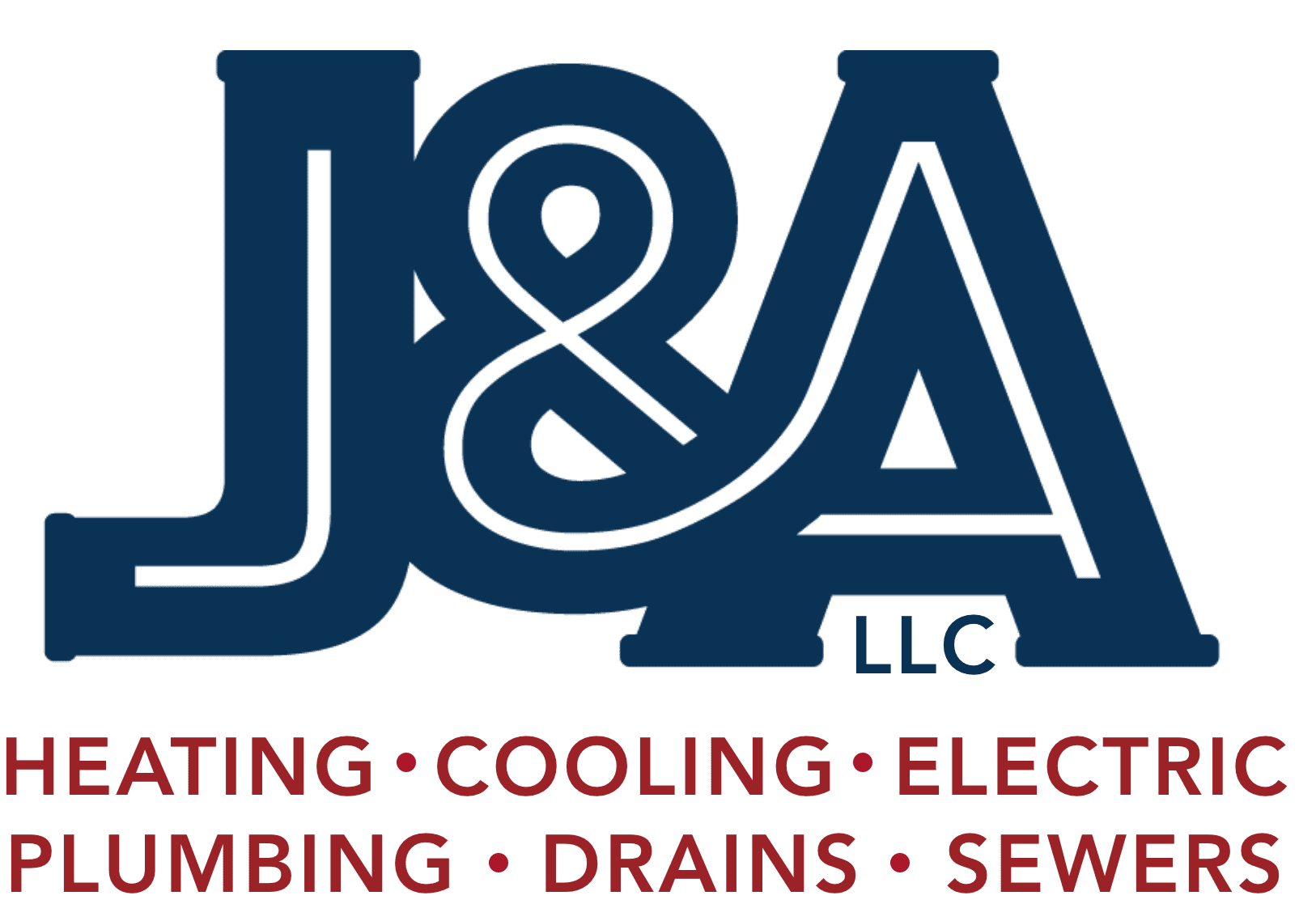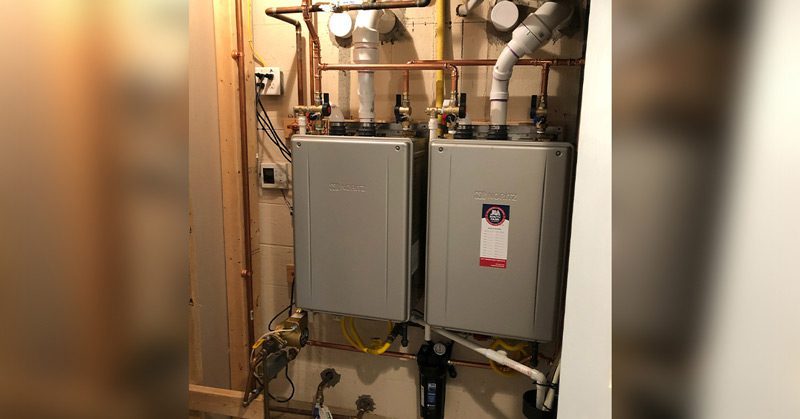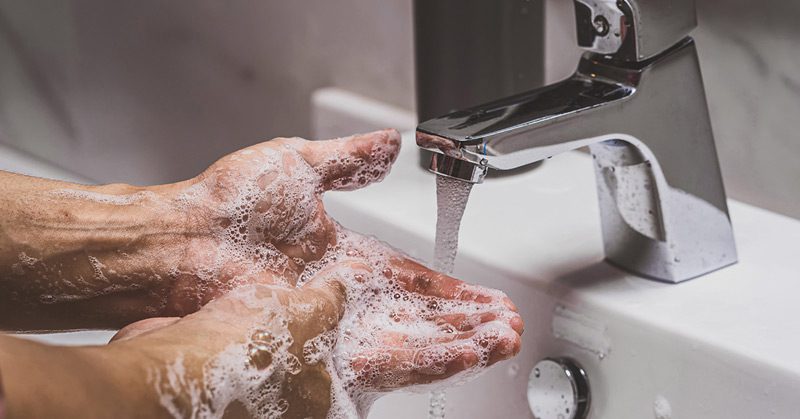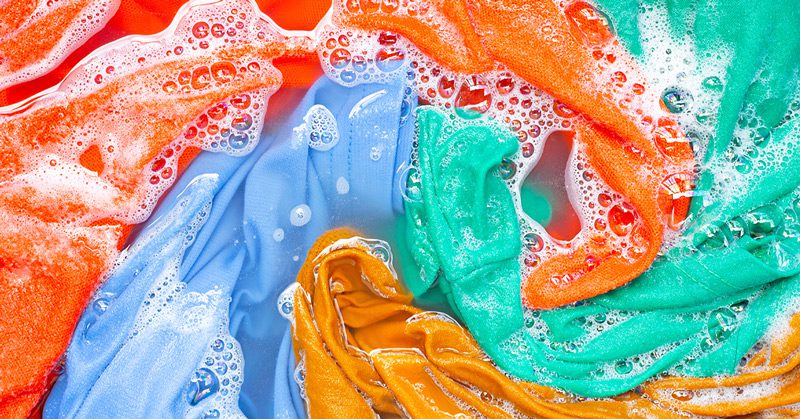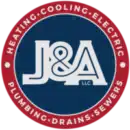Giving Some Thought to a New Water Heater? How About a Tankless Unit?
Is that rusty relic of a water heater looking more than a bit rough around the edges these days? Perhaps it’s time to think about replacing it with a new tankless water heater.
Tankless water heaters don’t make use of storage tanks like mainstream water heaters. Rather, they deliver hot water on demand. With a standard water heater, when you turn your shower on, it pulls water from the storage tank, and that water has already been heated.
If you employ a tankless water heater, your shower will as an alternative pull water through it, and the water would come fresh from the source, heating quickly on its way to your shower via pipes, passing the heating elements.
For the most part, tankless water heaters are still considered a new method for heating water in your home.
However, the truth is that tankless actually had its start nearly 150 years ago when a painter named Benjamin Waddy Maughn invented the initial instantaneous domestic water heater that didn’t use solid fuels. His invention had cold water at the top flowing through wires heated by hot gases from a burner at the bottom. Called the “gas geyser,” it didn’t include a flue for venting gas vapors, so it was too dangerous for practical use.
While there were other early pioneers in water heating, it wasn’t until 1927 that Stiebel Eltron’s small instantaneous water heater provided 1,000 watts and contained a then-groundbreaking two-stage technology.
The Thermal Appliance Company (TACO) was also an early developer of tankless in the 1920s with a water heater and a tempering valve that mixed hot and cold water. In doing so, the company, in time, came to command the household water heater market in America. The “Taco heater” became a standard name recognized throughout the emerging indoor heating industry.
However, gas-powered tank storage models controlled the market until the 1970s, when tankless began to be viewed as an option. As efficiency improved in the 1990s, tankless systems created a greater effect on the U.S. Market.
Tankless is now commonplace as Americans become more eco-conscious and welcome instant hot water paybacks. According to a report from Grand View Research, the global tankless market was valued at $2.8 billion in 2018 and expanding at a compound annual growth rate of 7.5 percent through 2025.
If you’re in the market for a new water heater, or you want to jump on the advantages of a tankless system, you might want to skip the tank and opt for a tankless water heater this time around.
What then are the chief benefits of a tankless water heater?
Energy efficiency
Generally speaking, the majority of the nation’s carbon emission numbers arise from corporations, power plants, and unsustainable, non-renewable energy use. The everyday citizen can’t stop the first two reasons, but they can surely limit their use of resources.
One such tactic is to install a tankless water heater. Matched up to traditional tank-style water heaters, tankless systems conserve more energy. Storage water heaters are enormously wasteful appliances when it concerns their energy use, undergoing what is accepted as standby energy loss. A burner heats the water, and water is accumulated within the tank, waiting to be used. The thermal energy disintegrates while it stays in the tank. In other words, hot water remains in the tank whether it’s being used or not, which means you could be wasting energy. This is particularly true when you’re away from home as the conventional tank is continually firing up to reheat the water in its tank.
Tankless water heaters work to rectify this waste by employing “on-demand” heating which allows the water to be heated and supplied as needed as opposed to stored and heated at all times. It’s really quite simple. When you turn on the hot water tap, cold water travels through a pipe into the unit and is heated by an electric heating element or a gas burner.
That means no hot water is wasted, saving energy and helping families reduce energy costs.
Are you looking for ways to save on your utility bills? Water heating accounts for approximately 17 percent of your home’s energy use, making it the second-highest provider to your utility costs just after your heating and cooling system.
It’s rather simple: By giving up storage water heaters for their tankless counterparts, homeowners are saving money on the energy they don’t waste to standby energy loss.
Such tankless units run far more efficiently and use less energy than a tank unit. Since they use less water and run more efficiently, it means more money back in your pocket each month. It’s estimated that the average tankless water heater helps save up to 30 percent more energy annually.
Continuous hot water
Not only is hot water available to you on-demand, but once it arrives, there’s a never-ending source of it –presuming there are no difficulties with your fuel source or original water source.
Tankless water systems never run out of water, providing a constant supply of hot water at a preset temperature level, which is terrific for filling up a large tub or whirlpool. They can provide as much as 5 to 7 gallons of hot water each minute. This shows you would have more than sufficient hot water for numerous showers and for appliances to run at the same time.
For instance, you could run the dishwasher, washing machine and have three showers all going simultaneously, and the system will continue providing hot water without running out. Tankless systems are planned for high-volume distribution.
With traditional, tank-style heaters, when hot water runs out, it could take a long period of time for the tank to fill back up with hot water. Not to mention the high energy costs that come with storing hot water that may not be used.
Note: The caveat here is that the system must be operating within its capacity, which is why it’s so important to project your usage accurately based on the home and the number of residents in it. Your J&A South Park team can help you determine the correct capacity for your home.
Water conservation
The average traditional tank water heater will take two to three minutes to provide hot water and 20 to 30 minutes to refill the reserve. With tankless units, there is no more waiting around for the water to heat up. It happens instantly. Not only does this save time with the ability to get in and out of the shower quickly, but it will also save you wasted water going down the drain while you wait for the hot water to arrive finally.
Extended life
The average life expectancy of a storage-based water heater is approximately 10 to 15 years. The life expectancy of a tankless water heater is closer to 20 years. These products often have better warranties that reflect these estimates. Tankless systems are also more apt to overachieve their outlooks since the parts that can go bad are smaller and more reasonably priced to replenish. With a storage-based system, the tank will go bad in time, and there’s no way around it. In both cases, realizing a long lifespan demands routine inspection and cleaning, and this is particularly true if you have hard water and don’t soften or filter it.
Peace of mind
Have you ever experienced a water heater leak? Average water heater tanks hold around 50 gallons or more of water. If your tank springs a leak, this could trigger a huge mess and a lot of water damage Tankless water heaters don’t hold that risk since there’s no tank that stores water. A tankless water heater could only produce about as much damage as a leaky faucet, so there’s no need to worry about a catastrophe.
Added safety
Safety is a major worry for families, especially those with young children. If you’re concerned about the safety of a tankless water heater, you can put your mind at ease.
Conventional storage water heaters can overheat, and in rare occurrences, explode. Because tankless models store very little water, the danger of overheating or explosion is substantially lower.
Moreover, the latest tankless water heaters boast several characteristics which further boost their safety. For example, newer models include monitoring systems that offer details about water pressure. Just in case of system failure, the machine would automatically turn off the heater.
Tax credits, rebates and other incentives
There are often federal tax credits provided for efficient water heaters. You may also have possible rebates from your state and local government in addition to other incentives through your utility company. It’s important to explore these options early in the process because the incentives may often nudge you toward one product over another.
A tankless water heater could also be an excellent choice if any of the following statements are true.
- My family doesn’t use a lot of hot water. The less water you use, the more you can anticipate saving by going tankless. Homes that consume 40 gallons of hot water or less per day save 24 to 34 percent compared to traditional tank water heating. Even if you use more than twice that amount, you can still save 8 to 14 percent on your water heating costs.
- I don’t plan on moving anytime soon. Tankless water heaters cost more upfront than traditional tanks, but they offer monthly energy savings and last twice as long. Consequently, you are liable to break even on your investment years before it’s time to replace it. Obviously, the sure way to make the most of this is if you remain in your current home for a longer period of time.
- My home is short on storage space. Storage water heaters are about 60 inches tall and 24 inches in diameter, taking up cherished storage space. Tankless water heaters are about 1/5 the size of a conventional tank unit. They normally measure about 20 inches wide by 28 inches tall by 10 inches deep or about the size of a piece of carry-on luggage. Plus, the unit mounts to the wall, getting it up off the floor. If you occupy a small condo or townhouse, this size differential could be an extra perk to the benefits of a tankless water heater.
The big switch
Switching to tankless from a storage-tank water heater is no easy swap because it entails a plumbing retrofit and a possible upgrading to your electric or gas lines to add capacity.
Moreover, according to the American Council for an Energy-Efficient Economic, 90 percent of water heater installations occur during an emergency, such as a water heater leaking. This puts you at a disadvantage when you’re negotiating with a potential plumber or contractor to make the switch on your fixed timeline.
But if your storage tank water heater is nearing the end of its useful life and you’re interested in saving space and energy, tankless water heaters are certainly worth a look.
